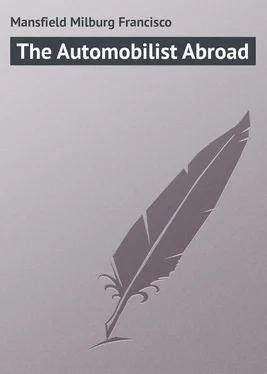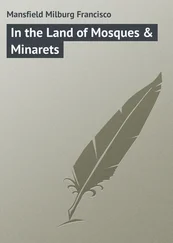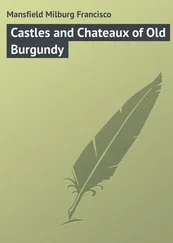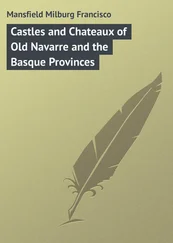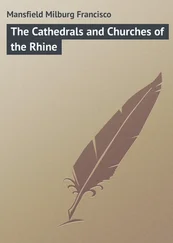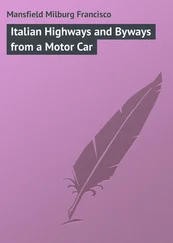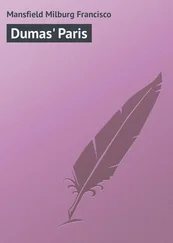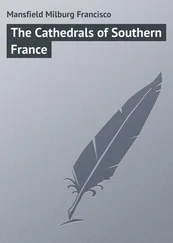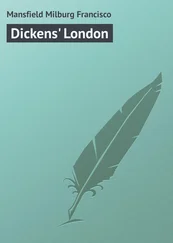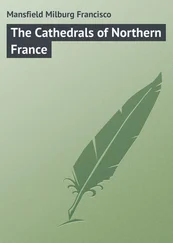Milburg Mansfield - The Automobilist Abroad
Здесь есть возможность читать онлайн «Milburg Mansfield - The Automobilist Abroad» — ознакомительный отрывок электронной книги совершенно бесплатно, а после прочтения отрывка купить полную версию. В некоторых случаях можно слушать аудио, скачать через торрент в формате fb2 и присутствует краткое содержание. Жанр: Путешествия и география, foreign_prose, foreign_language, на английском языке. Описание произведения, (предисловие) а так же отзывы посетителей доступны на портале библиотеки ЛибКат.
- Название:The Automobilist Abroad
- Автор:
- Жанр:
- Год:неизвестен
- ISBN:нет данных
- Рейтинг книги:4 / 5. Голосов: 1
-
Избранное:Добавить в избранное
- Отзывы:
-
Ваша оценка:
- 80
- 1
- 2
- 3
- 4
- 5
The Automobilist Abroad: краткое содержание, описание и аннотация
Предлагаем к чтению аннотацию, описание, краткое содержание или предисловие (зависит от того, что написал сам автор книги «The Automobilist Abroad»). Если вы не нашли необходимую информацию о книге — напишите в комментариях, мы постараемся отыскать её.
The Automobilist Abroad — читать онлайн ознакомительный отрывок
Ниже представлен текст книги, разбитый по страницам. Система сохранения места последней прочитанной страницы, позволяет с удобством читать онлайн бесплатно книгу «The Automobilist Abroad», без необходимости каждый раз заново искать на чём Вы остановились. Поставьте закладку, и сможете в любой момент перейти на страницу, на которой закончили чтение.
Интервал:
Закладка:
One must in duty bound regulate his pace and his actions by the vagaries of others, however little he may want to, or unfortunate consequences will many times follow. Always he must have a sharp look ahead and must not neglect a backward glance now and then. He must not dash through muddy roads and splash passers-by (a particularly heinous offence in England), and in France he must observe the rule of the road (always to the right in passing, – no great difficulty for an American, but very puzzling to an Englishman), or an accident may result which will bring him into court, and perhaps into jail, unless he can assuage the poor peasant's feelings for the damaged forelegs of his horse or donkey by a cash payment on the spot.
Maeterlinck's "wonderful, unknown beast" is still unknown (and feared) by the majority of outsiders, and the propaganda of education must go on for a long time yet. Maeterlinck's great tribute to the automobile is his regard for it as the conqueror of space. Never before has the individual man been able to accomplish what the soulless corporations have with railway trains. In steamboat or train we are but a part and parcel of the freight carried, but in the automobile we are stoker, driver, and passenger in one, and regard every road-turning and landmark with a new wonder and appreciation.
We are the aristocrats of tourists, and we are bound therefore to have a kindly regard for other road users or a revolution will spring up, as it did in feudal times.
Take Maeterlinck's wise sayings for your guide, and be tolerant of the rights of others. This will do automobilism more good than can be measured, for it has come to stay, and perhaps even advance. The days of the horse are numbered.
"In accord with the needs of our insatiable, exacting soul, which craves at once for the small and the mighty, the quick and the slow; here it is of us at last, it is ours, and offers at every turn glimpses of beauty that, in former days, we could only enjoy when the tedious journey was ended."
The "tour abroad" has ever been the lodestone which has drawn countless thousands of home-loving English and Americans to Continental Europe. Pleasure – mere pleasure – has accounted for many of these pilgrims, but by far the largest proportion have been those who seek education and edification combined.
One likes to be well cared for when he journeys, whether by road or rail, and demands accordingly, if not all the comforts of home, at least many things that the native knows or cares little of. A Frenchman does not desire a sitting-room, a reading-room, or a fire in his sleeping-room, and, according to his lights, he is quite right. He finds all this at a café, and prefers to go there for it. The steam-heated hotel, with running water everywhere, is a rarity in France, as indeed it is in England.
Outside Paris the writer has found this combination but seldom in France; at Lyons, Marseilles, Moulins in the Allier, and at Chatellerault in Poitou only. Modernity is making its way in France, but only in spots; its progress is steady, but as yet it has not penetrated into many outlying districts. Modern art nouveau ideas in France, which are banal enough, but which are an improvement over the Eastlake and horsehair horrors of the Victorian and Louis-Philippe periods, are tending to eliminate old-fashioned ideas for the benefit of the traveller who would rather eat his meals in a bright, airy apartment than in stuffy, dark hole known in England as a coffee-room.
In France, in particular, the contrast of the new and old that one occasionally meets with is staggering. It is all very well in its way, this blending of antiquity and modernity, and gives one something of the thrill of romance, which most of us have in our make-up to a greater or lesser extent; but, on the other hand, romance gets some hard knocks when one finds a Roman sarcophagus used as a watering-trough; or a chapel as an automobile garage, as he often will in the Midi.
One thing the American, and the Britisher to a lesser extent, be he automobilist or mere tourist, must fully realize, and that is that the tourist business is a more highly developed industry in Continental Europe than it is anywhere else. In Switzerland one may well say that it is a national industry, and in some parts of France (always omitting Paris, which is not France) it is practically the same thing; Holland and Belgium are not far behind, and neither is the Rhine country; so that the tourist in Europe finds that creature comforts are always near at hand. The automobilist does not much care whether they are near at hand or not. If he doesn't find the accommodations he is looking for on the borders of Dartmoor, he can keep on to Exmoor, and if Nevers won't suit his purpose for the night he can get to Moulins in an hour.
A hotel that is full and overflowing is no more a fear or a dread; the automobilist simply takes the road again and drops in on some market-town twenty, thirty, or fifty miles away and finds accommodations that are equally satisfactory, with the possibility – if he looks in at some little visited spot like Meung or Beaugency in Touraine, Ecloo in Holland, or Reichenberg on the Rhine – that he will be more pleased with his surroundings than he would be in the large towns which are marked in heavy-faced type in the railway guides, and whose hotels are starred by Baedeker.
In most countries the passport is no longer a necessary document in the traveller's pocketbook, though the Britisher still fondly arms himself with this "protection," and the American will, if it occurs to him, be only too glad to contribute his dollars to the fees of his consulate or embassy in order to possess himself of a gaudy thing in parchment and gold which he can wave in front of any one whom he thinks transgresses his rights as an American citizen: "from the land of liberty, and don't you forget it."
This is all very well and is no doubt the very essence of a proper patriotism, but the best pièce d'identité for the foreigner who takes up his residence in France for more than three months is a simple document which can be obtained from the commissaire de police. It will pass him anywhere in France that a passport will, is more readily understood and accepted by the banker or post-office clerk as a personal identification, and will save the automobile chauffeur many an annoyance, if he has erred through lack of familiarity with many little unwritten laws of the land.
The automobilist en tour always has the identification papers of his automobile; in England his "License," and in France his "Certificat de Capacité" and "Récépisse de Déclaration," which will accomplish pretty much all the passport of other days would do if one flourished it to-day before a stubborn octroi official or the caretaker of a historical monument.
The membership card of the Italian, Swiss, or French touring clubs will do much the same thing, and no one should be without them, since membership in either one or all is not difficult or costly. (See Appendix.)
France is the land par excellence for the tourist, whether by road or rail. The art of " le tourisme " has been perfected by the French to even a higher degree than in Switzerland. There are numerous societies, clubs, and associations, from the all-powerful Touring Club de France downward, which are attracting not only the French themselves to many hitherto little-known corners of " la belle France ," but strangers from over the frontiers and beyond the seas. These are not the tourists of the conventional kind, but those who seek out the little-worn roads. It is possible to do this if one travels intelligently by rail, but it is a great deal more satisfactorily done if one goes by road.
Here and there, scattered all over France, in Dauphiné, in Savoie, and in the Pyrenees, one finds powerful "Syndicats d'Initiative," which not only care for the tourist, but bring pressure to bear on the hotel-keeper and local authorities to provide something in the way of improvements, where they are needed, to make a roadway safe, or to restore a historical site or monument.
Читать дальшеИнтервал:
Закладка:
Похожие книги на «The Automobilist Abroad»
Представляем Вашему вниманию похожие книги на «The Automobilist Abroad» списком для выбора. Мы отобрали схожую по названию и смыслу литературу в надежде предоставить читателям больше вариантов отыскать новые, интересные, ещё непрочитанные произведения.
Обсуждение, отзывы о книге «The Automobilist Abroad» и просто собственные мнения читателей. Оставьте ваши комментарии, напишите, что Вы думаете о произведении, его смысле или главных героях. Укажите что конкретно понравилось, а что нет, и почему Вы так считаете.
